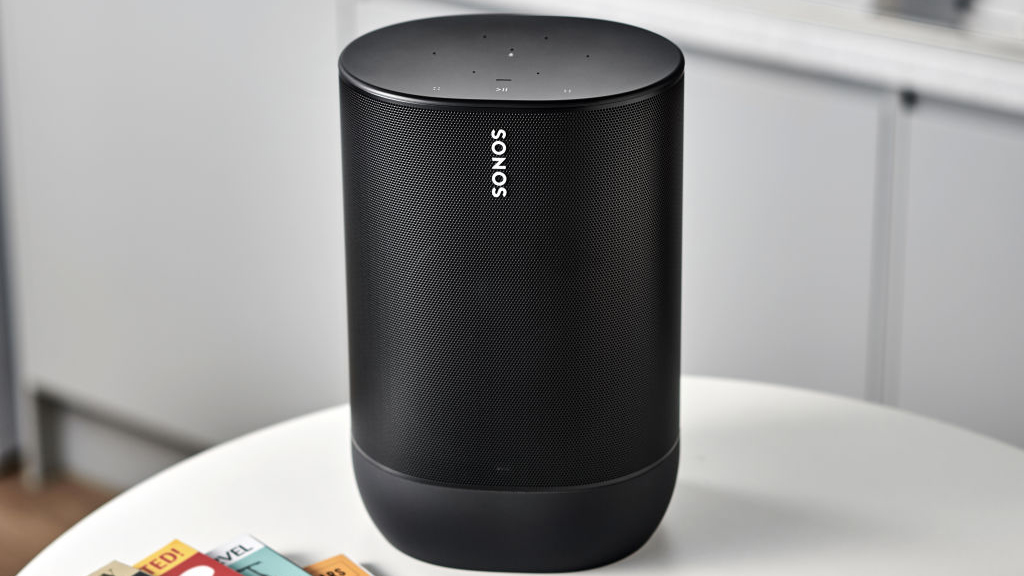Google banned from importing patent-infringing tech following Sonos IP victory
However, it appears Google has been working on product redesigns to circumvent the patents


Google has been banned from importing or selling products that violate five Sonos patents, although it appears the tech giant has been developing redesigns to get around them.
The US International Trade Commission (ITC) ruled on Thursday that the tech giant violated a series of Sonos patents that cover smart speaker hardware and how devices pair with one another.
The ruling includes patent US9195258B2, which is a system and method for synchronising operations among a plurality of independently clocked digital data processing devices, as well as patent US10209953B2, which is for a playback device.
Google was also found in breach of patent US9219959B2, covering multi-channel pairing in a media system, US8588949B2, which is a method and apparatus for adjusting volumes in a multi-zone system, and US10439896B2, which covers playback device connections.
Sonos believes that those Google products affected by the ruling include Pixel phones, home devices like the Nest Hub, Chromecast, Nest Mini, and Pixel computers with the YouTube Music app installed, according to a statement to The Verge.
However, it appears Google has been working on redesigns to get around Sonos’ patents, according to a report from Bloomberg from September 2021. A filing in the ITC case found that a judge determined that certain alternative designs by Google don’t infringe on the patents.
"There is a possibility that Google will be able to degrade or eliminate product features in a way that circumvents the importation ban that the ITC has imposed," Sonos chief legal officer Eddie Lazarus said in a statement. "But while Google may sacrifice consumer experience in an attempt to circumvent this importation ban, its products will still infringe many dozens of Sonos patents, its wrongdoing will persist, and the damages owed Sonos will continue to accrue. Alternatively, Google can - as other companies have already done - pay a fair royalty for the technologies it has misappropriated."
Sign up today and you will receive a free copy of our Future Focus 2025 report - the leading guidance on AI, cybersecurity and other IT challenges as per 700+ senior executives
One of these workarounds may already be live, with 9to5Google reporting that in November the tech giant removed Android 12’s ability to control the Chromecast’s volume. Mishaal Rahman, senior technical editor for Esper, spotted a Googler citing the reason why it was disabled was down to a “legal issue”. Rahman then said yesterday that in the Pixel’s January 2022 update, cast volume controls have been re-enabled.
"While we disagree with today’s decision, we appreciate that the International Trade Commission has approved our modified designs and we do not expect any impact to our ability to import or sell our products," said Google spokesperson José Castañeda said to IT Pro, adding that the company will seek further review to the ruling. The company also has 60 days to implement changes before a ban goes in place.
Yesterday, the Google Nest Team posted an update detailing that, due to a recent legal ruling, new changes will come into effect on how Speaker Group functionality will work. To adjust volume on speaker groups, users will have to adjust each speaker individually instead of using the group volume controller, and users will no longer be able to change the Speaker Group volume using their phone’s physical volume button. Some users will also need to install a new app in order to update.
Zach Marzouk is a former ITPro, CloudPro, and ChannelPro staff writer, covering topics like security, privacy, worker rights, and startups, primarily in the Asia Pacific and the US regions. Zach joined ITPro in 2017 where he was introduced to the world of B2B technology as a junior staff writer, before he returned to Argentina in 2018, working in communications and as a copywriter. In 2021, he made his way back to ITPro as a staff writer during the pandemic, before joining the world of freelance in 2022.
-
 Trump's AI executive order could leave US in a 'regulatory vacuum'
Trump's AI executive order could leave US in a 'regulatory vacuum'News Citing a "patchwork of 50 different regulatory regimes" and "ideological bias", President Trump wants rules to be set at a federal level
-
 TPUs: Google's home advantage
TPUs: Google's home advantageITPro Podcast How does TPU v7 stack up against Nvidia's latest chips – and can Google scale AI using only its own supply?
